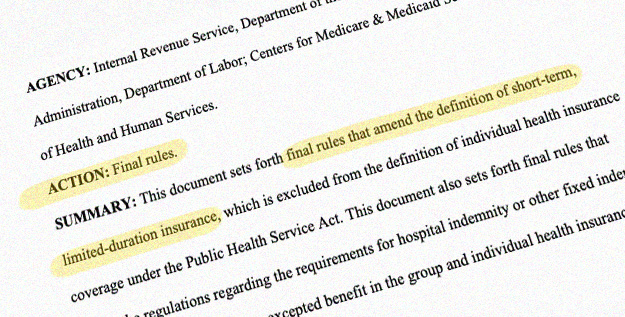Q. My husband works for a much larger company than I do. I have always been covered under his plan because it is more affordable than the one offered by my smaller company. We just received a letter from his company stating that beginning next year, if I had access to my own health insurance I can no longer be covered under his insurance. Is this legal?
A. Yes, it is legal. The ACA requires employers with 50 or more workers to offer coverage to employees and their children (until age 26), but not spouses. But according to the Kaiser Family Foundation’s annual survey of employer-sponsored coverage, 95 percent of employers that offer health benefits extend that offer to employees’ spouses.
However, only 86 percent of those employers allow spouses to enroll if they have access to coverage from their own employer. And of those employers, 13 percent charge a higher premium for spouses who have access to their own employer’s coverage. And this approach has been gaining popularity among employers.
Do I have any other alternatives?
Since you’ll no longer have access to coverage through your husband’s job, the affordability test for your coverage will depend on what it costs to obtain coverage through your own job. Assuming the portion of the premium that you’re required to pay (for yourself only) doesn’t exceed 9.83 percent of your household income in 2021, and assuming the coverage your employer offers pays for at least 60 percent of the average enrollee’s medical costs and provides “substantial coverage” for inpatient and physician care (ie, meets minimum value requirements), you wouldn’t be eligible for a subsidy to purchase individual health insurance in the exchange.
But if the coverage your employer offers doesn’t meet the tests for affordability and minimum value, you’d be eligible to receive a subsidy to offset the cost of health insurance purchased through the exchange, as long as you’re a legal U.S. resident and you qualify for a subsidy based on household income (note that you might still end up being ineligible for a subsidy, since the calculation will be based on whether or not the cost of the benchmark plan for just your coverage exceeds a specified percentage of your entire household’s income, including the income your husband earns).













